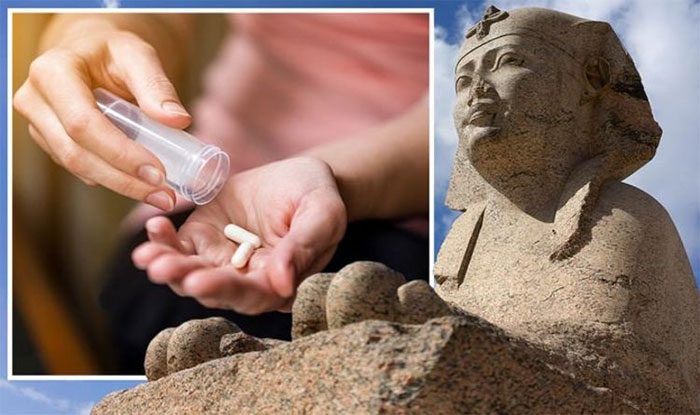Some researchers have claimed that an ancient Egyptian treatment for gout could reduce the risk of death from Covid-19 by up to 50%.
A new study published in the European Journal of Internal Medicine has highlighted the promising properties of a drug extracted from saffron. Colchicine has long been used to treat gout, a type of arthritis that causes severe joint pain. According to researchers from the Hebrew University of Jerusalem and Hadassah Medical School, this drug has the potential to treat severely ill Covid-19 patients and may reduce mortality rates by as much as 50%.

Researchers claim that an ancient Egyptian drug may be used to treat Covid-19. (Photo: GETTY)
Colchicine is one of the few drugs that has existed for thousands of years and is still in use today. Ancient Egyptians recognized its healing properties as far back as 1500 BC and described it in the Ebers Papyrus (an ancient Egyptian medical document). Its medicinal qualities were also known to the ancient Greeks and the Byzantine Empire due to its ability to treat inflammation.
Recently, colchicine has been studied by scientists worldwide to determine whether it truly benefits those infected with Covid-19. According to Professor Ami Schattner from the Hebrew University, various studies have thus far shown “clear benefits” from the use of this drug.
The project includes four controlled studies involving approximately 6,000 Covid-19 patients. Following the trials, Professor Schattner stated: “There has been a significant improvement in severe coronavirus indicators, most importantly a reduction in mortality rates by about 50% compared to those not treated with colchicine.”
Colchicine is produced at a low cost and is widely available. If this drug proves effective, it would represent a promising breakthrough in the fight against the pandemic.
The efficacy of the drug has been tested in South Africa, Canada, Greece, Spain, and Brazil. However, Professor Schattner cautioned that preliminary results are not sufficient to start widespread use of the drug among patients. He stated: “Although initial data on the effects of colchicine on Covid-19 patients is very promising, more randomized controlled trials are needed to truly determine the drug’s potential.”
In fact, a recent report published in the medical journal The Lancet warned of the risk of side effects associated with the drug. The study analyzed data from 177 hospitals in the UK, where Covid-19 patients were treated with colchicine. Scientists asserted that the drug was not associated with a reduction in mortality over 28 days, length of hospital stay, or the risk of Covid-19 transmission or fatality.
Subsequently, another study published in RMD Open did not support the use of this drug. The researchers wrote: “Colchicine does not reduce the risk of death, does not decrease the need for ventilators, nor does it shorten the hospital stays of Covid-19 patients. It appears that this drug has not had much effect in supportive care for managing Covid-19 patients.”


















































